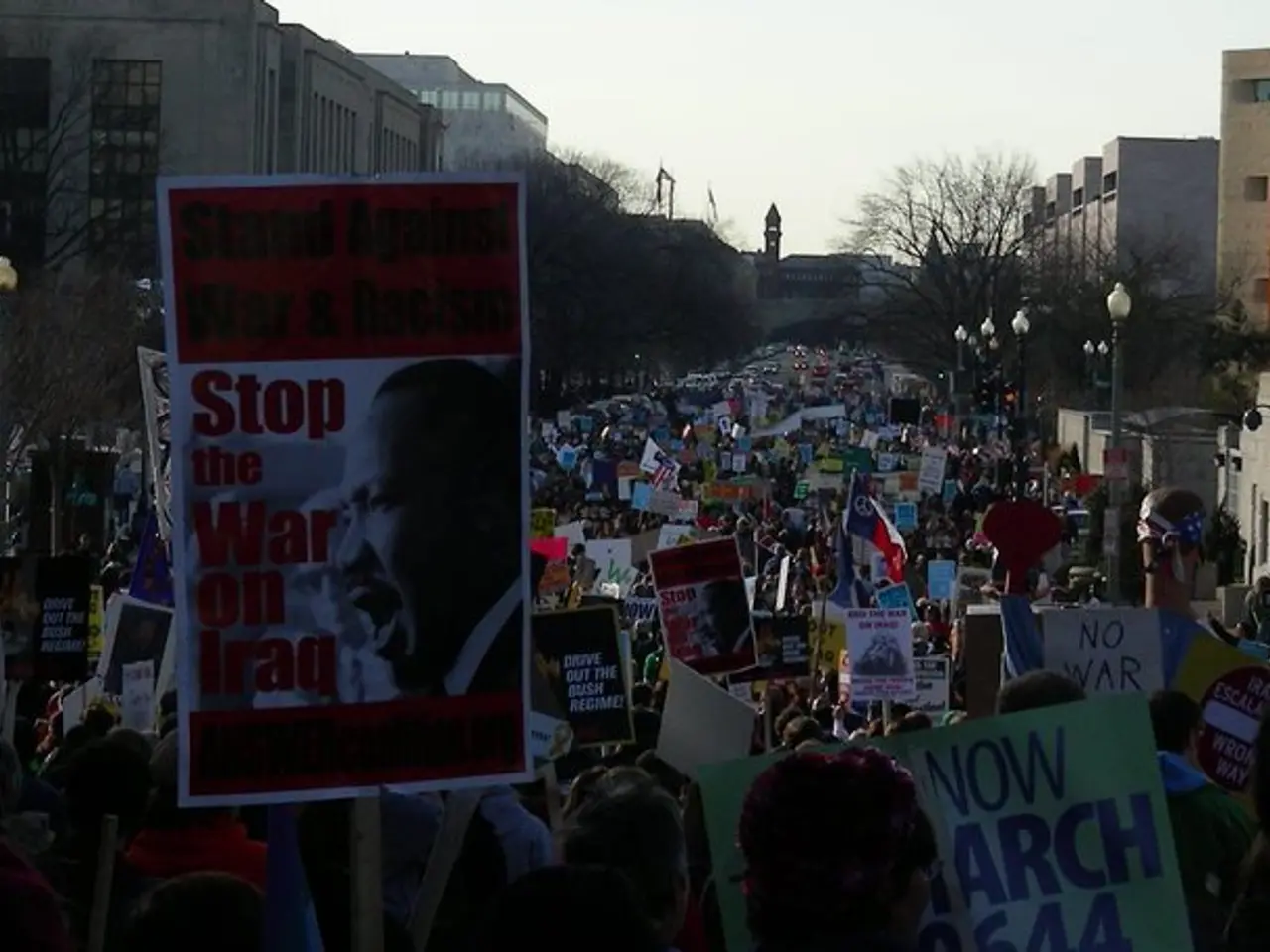Mayor of Budapest under investigation for Pride march allegations
Budapest Mayor Faces Criminal Charges for Organizing Pride Parade
Gergely Karácsony, the environmentalist mayor of Budapest, is currently embroiled in a legal dispute after being charged for organizing and encouraging participation in a Pride march that was banned by the police. The charges, which could potentially result in a year in prison, stem from Karácsony's defiance of a government-imposed ban on the event.
The Pride parade, known as "Budapesti Büszkeség" or "Budapest Pride," took place on June 28, despite the ban and threats of legal consequences. Over 200,000 people participated in the march, making it one of the largest Pride events in Europe.
The event was a rebuke of Hungarian Prime Minister Viktor Orbán's years-long clampdown on LGBTQ rights in the name of "child protection." Orbán had previously declared his intention to ban the Pride celebration this year.
Karácsony, who is known for his opposition to Orbán's conservative government, collaborated with the Pride organizers and relied on municipal cooperation and volunteers instead of police permission or city funding. The Budapest city hall co-organized the event, arguing that a municipal event cannot be legally banned by police.
Before the march, Orbán warned organizers and attendees of potential legal consequences. The National Bureau of Investigation launched a probe against an "unknown perpetrator" for organizing a banned rally, likely referring to the Pride parade organizers.
During the interrogation, Karácsony did not answer questions posed by investigators and wore a T-shirt featuring the capital's coat of arms overlaid with rainbow colors. He contests the accusations against him on legal grounds and considers them unfounded.
The charges against Karácsony highlight a political struggle over freedom of assembly and LGBTQ+ rights in Hungary. If the charges are not dropped, Karácsony could potentially spend up to a year in prison. His defense is based on another part of the law stating that municipal events do not require police permits.
Karácsony addressed a few hundred supporters outside the headquarters of Hungary's top investigative authority, reiterating his stance that freedom and love cannot be banned in Budapest. The event proceeded with support from opposition parties and civil groups, underscoring the ongoing battle against restrictive policies under Orbán’s administration.
The ongoing legal dispute against Budapest Mayor Gergely Karácsony underscores the broader political struggle over freedom of assembly and LGBTQ+ rights in Hungary, as he faces criminal charges for organizing the Pride parade. This legal battle, with potential consequences of up to a year in prison, intersects the realms of politics, general news, and crime and justice.
The charges against Karácsony, imposed due to his defiance of the government-imposed ban on the Pride march, signal the broader environmentalist mayor's commitment to upholding human rights and democratic values in the face of conservative policies, contributing significantly to the environmental, political, and social discourse.







